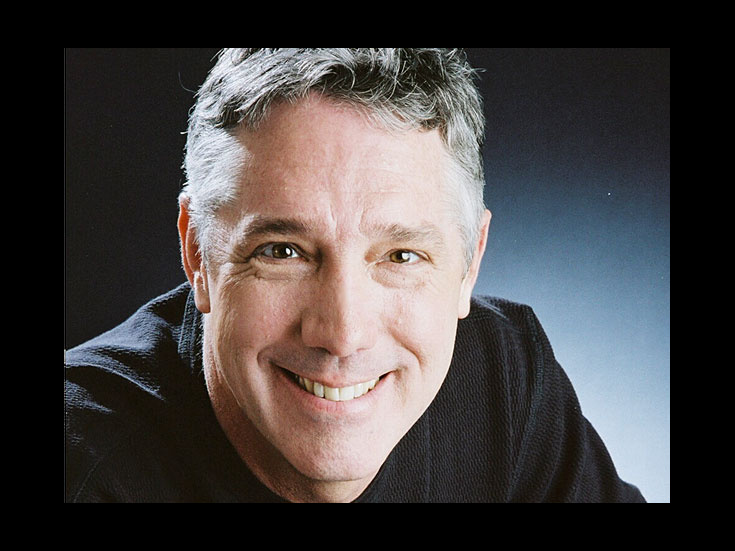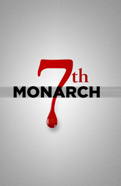Michael Rupert of 7th Monarch Looks Back on Falsettos, Sweet Charity and More
Michael Rupert earned his place in musical theater history for creating the role of Marvin (father of bar mitzvah boy Jason) in William Finn’s fabulous Falsettos, which debuted way back in 1981 as March of the Falsettos and continued in 1990 with Falsettoland before the two parts were presented together on Broadway. A Tony winner for the 1986 revival of Sweet Charity, Rupert has been a stage stalwart since his debut as a teen in Kander & Ebb’s 1968 musical The Happy Time. Now featured in the off-Broadway thriller 7th Monarch, Rupert chose to spotlight six memorable musicals for Broadway.com.
 Role That Was the Most Satisfying
Role That Was the Most Satisfying
“Because of the way [composer] Bill Finn and [librettist] Jim Lapine wrote it, Falsettos [1992 Best Actor Tony nomination] was a musical unlike any other, and the story, for its time, was very important. Bill and Jim kept saying to us, ‘This is not a ‘gay play,’ it’s a show about a lunatic family who also love each other deeply, and a few of them happen to be gay.’ Marvin had left his wife and child for another man, but he wasn’t a stereotypical gay man. He was just a self-absorbed guy who yells ‘I want it all’ and is a pain in the ass, although he grows as the story goes on. The second half, Falsettoland, was written during the AIDS crisis, which made it even more moving, not only for the audience but all of us. It was an incredibly satisfying show to act in, and once we put the two parts together on Broadway, the experience became even more powerful. To this day, people come up to me on the street and say, ‘You don’t know what that show meant to me,’ especially if they were a young, gay person at that time. The little cast is still very close. It’s like we did became a family.”
 Role That Was My Big Break
Role That Was My Big Break
“I booked my first Broadway show, The Happy Time [as Bibi Bonnard; 1968 Best Featured Actor Tony nomination] when I was 15 years old. I had started acting in TV and film in Los Angeles and was cast there; I moved to New York for a year with my mother and worked with Bob Goulet, who treated me like a little brother He was a really big star at the time; he would get mobbed at the stage door, and I thought it was so cool to be around that. I had two numbers in the first act, one called ‘Please Stay,’ in which I am begging Goulet, who played my uncle, not to leave, and ‘Without Me,’ a big ensemble dance number. I was involved in six or seven numbers, including ‘A Certain Girl,’ which I did with Goulet and David Wayne. The Tony nomination didn’t seem like a big deal at the time; I was doing eight shows a week and going to the Professional Children’s School and just having a good time. It wasn’t until I got my second nomination as an adult that I realized, ‘Oh, this is nice!’”
 Role That Was the Most Fun
Role That Was the Most Fun
“Sweet Charity [as Charity’s paramour Oscar; 1986 Tony Award for Best Featured Actor] was a terrific job, first of all, because it was the second time I worked with Bob Fosse; I had done Pippin with him some years before. Fosse was one of the best directors I ever worked with, just a visionary. He had the simplest ways of explaining things to help you get what he wanted in a performance. Oscar was a guy who couldn’t face commitment and ends up dumping Charity, literally, into a lake at the end of the second act. I’ve played a lot of jerks in my life, charming ones usually, but there is something very sweet about Oscar. It was a terrific production, and the people in the show made it fun. Debbie Allen, who played Charity, is one of the funniest people I’ve worked with in my life. We were together for about a year and a half, and we never stopped laughing. Bebe Neuwirth [Nickie] was also a lot of fun. She didn’t have the sense of humor Debbie and I did, but when she joined in, she was really sardonic and funny.”
 Role That Was the Most Emotionally Demanding
Role That Was the Most Emotionally Demanding
“Tateh in Ragtime [1999, national tour and Broadway] was a very difficult, dramatic role. He goes through a lot of stuff trying to protect his daughter: He’s poor; he gets into fights; there’s a lot of running around the stage. I was exhausted the whole time, but I loved playing the role. The score that Stephen [Flaherty] and Lynn [Ahrens] wrote is so brilliant, the book that Terrence McNally wrote is terrific, and the staging—just everything. When they offered me the job, I hadn’t seen the show. I liked the spectacle of it, but I enjoyed being in it even more. Once I started doing it, I really appreciated how brilliant the writing and the staging were.”
 Role I Wish More People Had Seen
Role I Wish More People Had Seen
“I did a musical at the Pasadena Playhouse called Dangerous Beauty [2011] that, unfortunately, was not a success, but I had a great time. It was directed by one of my favorite directors, Sheryl Kaller, who did Next Fall on Broadway. It was an absolutely beautiful show, based on a movie from the late 1990s about courtesans in Venice, with [a cast that included] Jenny Powers and Megan McGinnis and Bryce Ryness and James Snyder. I played the poet laureate of Venice, who was crippled. I only had one solo, but it was a beautiful song, and it’s a role that would have been interesting to do eight times a week for longer than we had in Pasadena. I really regret that the show didn’t go further.”
 Role That I Was Funniest In
Role That I Was Funniest In
“I had a ball doing Adrift in Macao [2005], at the Philadelphia Theatre Company, another show Sheryl Kaller directed. I didn’t get to do it in New York because I had been cast in Legally Blonde. Peter Melnick wrote the music and Chris Durang wrote the lyrics and the book. I love Chris’ work—his sensibility is so out there, and this show was crazy. I played Rick Shaw, the owner of Rick Shaw’s Surf & Turf Nightclub and Casino [loosely based on Rick’s Cafe in Casablanca]. That whole tongue-in-cheek film noir sensibility is so much fun. The show didn’t work in New York [in a 2007 production starring Will Swenson], but I regret that I didn’t get to do it off-Broadway.”
 Michael Rupert
Michael Rupert
